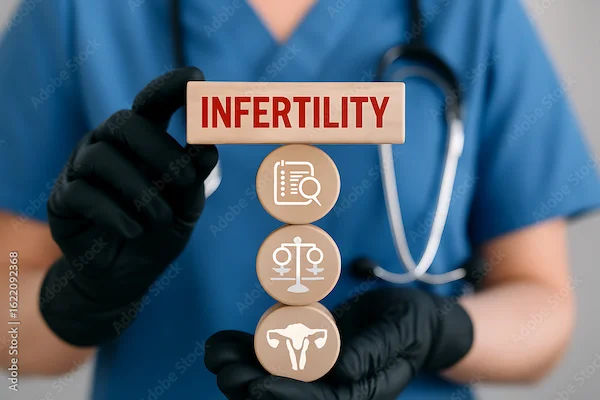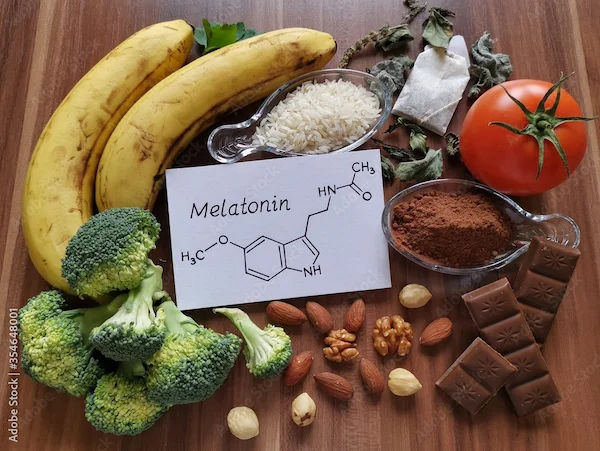The Complete Guide to a Healthy Vegan Diet
Learn how to plan a balanced vegan diet, meet nutrient needs, support heart health, manage weight, and optimise protein intake. Practical tips, meal plans, and supplements included.


Introduction
Switching to a vegan diet can feel exciting and a little overwhelming. Whether your goal is better heart health, weight management, supporting the planet, or simply eating more plants, you can thrive on a well-planned vegan diet. The key is knowing what to put on your plate, how to fill potential nutrient gaps, and how to make it practical for your life and budget.
In this guide, you’ll get an evidence-based overview of the vegan diet, including proven health benefits, nutrients to prioritise, easy meal-planning strategies, and how to personalise protein. You’ll also learn how to shop, cook, and eat out with confidence, plus what supplements and lab tests are worth considering. Tips for pregnancy, active lifestyles, kids, and older adults are included, along with real-world solutions for challenges like sudden fibre increases or IBS. By the end, you’ll have a clear, step-by-step plan to build a balanced vegan diet you enjoy and can sustain.
What Is a Vegan Diet?
Here's what defines a vegan eating pattern:
A vegan diet excludes all animal-derived foods, including meat, poultry, fish, dairy, eggs, and often honey. It centres on fruits, vegetables, legumes, whole grains, nuts, seeds, and plant-based oils. Many adopt a vegan diet for health, environmental, or ethical reasons, or a combination.
Consult Top Specialists
Vegan vs. Vegetarian: What’s the Difference?
Vegetarian diets exclude meat and fish but usually include dairy and/or eggs. A vegan diet excludes all animal products. A well-planned vegan diet can be healthful and nutritionally adequate for all life stages, including pregnancy and athletes, when nutrients are thoughtfully covered.
Whole-Food Plant-Based vs. “Junk Food” Vegan
A vegan label does not guarantee health. A whole-food plant-based approach emphasises minimally processed foods—vegetables, legumes, whole grains, nuts, seeds, and fruit—linked to better heart and metabolic outcomes. Highly processed vegan foods (fried snacks, sweets, refined grains) fit occasionally but should not dominate the diet. Aim for most choices to be whole-foods-based; convenience items (tofu, tempeh, fortified plant milks, frozen vegetables) make life easier.
Health Benefits: What the Science Says
Here's why a well-planned vegan diet supports health:
A vegan diet is associated with several advantages, particularly for cardiometabolic health. Emphasis on fibre-rich foods, unsaturated fats, and low saturated fat is key.
Heart Health and Cholesterol
Plant-forward diets are linked to lower LDL cholesterol and reduced risk of coronary heart disease. Choosing whole grains, legumes, nuts, seeds, and using olive or canola oil while limiting refined carbs can further improve lipid profiles. Many individuals see LDL reductions within 6–12 weeks.
Weight and Type 2 Diabetes
Vegan diets can support weight loss and improved insulin sensitivity due to higher fibre and lower energy density. Beans, lentils, intact whole grains, non-starchy vegetables, and minimally processed soy help stabilise blood sugar. Pairing meals with protein and healthy fats improves satiety and adherence.
Longevity and Cancer
Plant-based patterns are linked to lower all-cause mortality and reduced risk of some cancers, likely due to fibre, antioxidants, and lower processed meat intake. Meeting nutrient needs such as B12, D, iodine, and omega-3 is vital for long-term health.
Nutrients to Prioritise (and How to Get Them)
Here's which nutrients to focus on:
Vitamin B12: Non-Negotiable
• Essential for nerves and red blood cells; deficiency causes anaemia and neurologic symptoms.
• Sources: fortified foods (plant milks, nutritional yeast) and supplements. Typical intake: 25–100 mcg daily or 1000 mcg 2–3 times weekly.
Vitamin D and Calcium
• Vitamin D: Many adults require supplementation (600–800 IU/day, more if deficient). Fortified plant milks and UV-exposed mushrooms are helpful.
• Calcium: Aim ~1000–1200 mg/day from calcium-set tofu, fortified plant milks, tempeh, tahini, almonds, and low-oxalate greens.
Iron and Iodine
• Iron: Lentils, beans, soy, pumpkin seeds, fortified cereals. Pair with vitamin C to enhance absorption; avoid tea/coffee with meals.
• Iodine: Use iodised salt or a small supplement if avoiding sea vegetables; typical needs ~150 mcg/day.
Omega-3s and Choline
• Omega-3s: ALA from flax, chia, walnuts; consider algae-based EPA/DHA 250–500 mg/day if intake is low.
• Choline: Soy foods, quinoa, broccoli, fortified products.
Zinc and Selenium
• Zinc: Beans, whole grains, nuts, seeds; soaking/sprouting improves absorption.
• Selenium: Brazil nuts (1–2 nuts daily) or whole grains and legumes.
Protein and Performance on a Vegan Diet
Here's how to meet protein needs:
How Much Do You Need?
Most adults need 0.8–1.0 g/kg/day; active individuals may need 1.2–1.7 g/kg/day, and during energy restriction or heavy training, 1.6–2.2 g/kg/day. Spread protein across meals.
Protein Quality and Complete Amino Acids
Soy, quinoa, buckwheat, and mycoprotein are high-quality. Mixed plant proteins complement each other throughout the day. Include tofu, tempeh, edamame, lentils, chickpeas, seitan, and high-protein pastas. Fortified vegan protein powder is optional for convenience.
Meal Ideas for Active Lifestyles
• Breakfast: Tofu scramble with whole-grain toast; soy yogurt with hemp hearts; overnight oats with pea-protein milk.
• Lunch: Lentil salad with quinoa and pumpkin seeds; edamame-buckwheat soba bowl.
• Dinner: Tempeh stir-fry with brown rice; seitan fajitas with black beans.
• Snacks: Roasted chickpeas, trail mix, protein smoothie. Aim 25–40 g protein per meal and 10–20 g per snack for athletes.Consult Top Specialists
Build a Balanced Plate and Weekly Meal Plan
Here's how to structure meals:
The Vegan Plate Method
• Half plate: Non-starchy vegetables
• Quarter plate: Protein
• Quarter plate: Whole grains or starchy vegetables
• Plus: Healthy fats and calcium/iodine source
A Sample Day of Meals
• Breakfast: Oats with fortified soy milk, chia seeds, berries, almond butter.
• Lunch: Chickpea and farro salad with kale, red pepper, olive oil–lemon dressing; orange.
• Snack: Soy yogurt with ground flax and walnuts.
• Dinner: Tofu vegetable curry with brown rice and calcium-set tempeh; nutritional yeast for B12.
• Supplement: Daily B12; D and algae omega-3 as indicated.
Batch Cooking and Time-Savers
Cook beans, grains, and roasted vegetables in bulk. Prep sauces to change flavour profiles. Keep frozen vegetables and canned legumes for quick meals.
Smart Shopping, Cooking, and Budget Tips
Here's how to make it easy:
Pantry Staples and Vegan Grocery List
• Dried/canned beans, lentils, whole grains, tofu/tempeh, nuts/seeds, ground flax, chia, nutritional yeast, spices, iodised salt.
• Seasonal produce, frozen berries, greens.
• Fortified foods: plant milks, cereals, meat alternatives.
Label-Reading: Hidden Animal Ingredients
Watch for milk derivatives, egg albumin, gelatin, fish sauce, honey, shellac, L-cysteine, and animal-based vitamin D3. Check ingredient lists even when labelled “vegan.”
Eating Well on a Budget
Buy staples in bulk, choose seasonal produce, plan meals around legumes, and reduce waste with meal prep.
Special Considerations Across Life Stages
Here's how to adapt a vegan diet:
Pregnancy and Breastfeeding
Increase energy, protein, B12, D, iodine, iron, choline, DHA. Use nutrient-dense smoothies, fortified milks, and prenatal supplements.
Kids and Teens
Provide energy-dense, frequent meals and snacks. Monitor growth and consider a pediatric multivitamin covering B12, D, and iodine.
Older Adults and Bone Health
Prioritise protein, calcium, vitamin D, and B12. Include calcium-set tofu, fortified milks, legumes, and resistance exercises.
IBS and Low-FODMAP Vegan Strategies
Use firm tofu, tempeh, quinoa, oats, and low-FODMAP vegetables. Work with a dietitian to personalise intake.
Supplements, Lab Tests, and When to Seek Care
Here's what to monitor:
Evidence-Based Supplement Plan
• Always: Vitamin B12
• Often: Vitamin D
• Consider: Iodine, algae-based DHA/EPA, iron if deficient, calcium if intake insufficient, zinc
• Base dosing on lab results and clinician advice.
Suggested Lab Schedule
• Baseline and periodic: CBC, ferritin/iron studies, B12 ± MMA, 25(OH)D, TSH, lipid panel, HbA1c, omega-3 index. Apollo 24|7 offers home collection.
When to Consult a Clinician
Seek care if experiencing persistent fatigue, dizziness, numbness, hair loss, brittle nails, frequent infections, menstrual changes, or unexpected weight loss. Consult a doctor online with Apollo 24|7 if symptoms persist beyond two weeks.
Conclusion
A vegan diet can improve heart health, manage weight, and increase fibre and protective plant compounds. Practical approaches include balanced plates, legumes and soy for protein, whole grains, and healthy fats. Prioritise B12, vitamin D, iodine, and algae-based omega-3s based on labs. With planning, nutrient targets can be met across life stages, including pregnancy, older adulthood, and athletic goals.
Start gradually, focus on simple meals, batch-cook staples, stock a smart pantry, and use fortified foods. Track progress with labs; Apollo 24|7 provides convenient home collection. If persistent symptoms occur, consult a doctor online.
The best vegan diet is one you can sustain. Use the plate method, personalise protein, and keep flavours exciting. Evidence-based choices and mindful monitoring ensure a healthy and delicious vegan diet for the long term.Consult Top Specialists
Consult Top Specialists

Ms. Preeti Lata Mohanty
Dietician
2 Years • Msc in Food science and Nutrition
Bengaluru
Apollo Medical Center, Marathahalli, Bengaluru

Miss. Hafsana Fathima M
Dietician
4 Years • Msc food and nutrition
Bengaluru
Apollo Clinic, JP nagar, Bengaluru

Ms. Soma Saha
clinical nutrition
17 Years • B.Sc. - Home Science (Food & Nutrition), M.Sc. - Home Science (Food & Nutrition)
Kolkata
Dr Utsa Basu Clinic, Kolkata
(50+ Patients)

Ms. Sreeparna Dey Dhara Deb
Dietician
10 Years • DNHE
Bansdroni
Siddhita Healthcare., Bansdroni

Ms. Neelanjana J
Dietician
5 Years • Bsc., Msc. Nutrition and Dietetics specialised general weight management, PCOS/PCOD weight loss and Diabetes management. A clinical dietitian with 4+ year experience specializing in evidence-based, result-oriented nutrition therapy. I have extensive experience in weight loss, thyroid management, PCOD/PCOS, weight gain, and diabetes & prediabetes care. My approach is personalized, practical, and sustainable—focusing on helping individuals achieve long-term lifestyle change rather than quick fixes. I work closely with clients to understand their medical history, lifestyle, and goals, and then design customized diet plans that support hormonal balance, metabolic health, and overall wellbeing. My goal is to make nutrition simple, realistic, and effective—so you see measurable results and feel your healthiest self.Auther in Health benefits of jackfruit (Artocarpus heterophyllus Lam.) seeds: A review (2023) The Pharma Innovation Journal Co- Auther in Malnutrition in Women: A review (2023) The Pharma Innovation Journal. Highfield Level 3 in HACCP. Highfield Level 4 International Award in Food Safety Managment
Bengaluru
Apollo Clinic, JP nagar, Bengaluru
Consult Top Specialists

Ms. Preeti Lata Mohanty
Dietician
2 Years • Msc in Food science and Nutrition
Bengaluru
Apollo Medical Center, Marathahalli, Bengaluru

Miss. Hafsana Fathima M
Dietician
4 Years • Msc food and nutrition
Bengaluru
Apollo Clinic, JP nagar, Bengaluru

Ms. Soma Saha
clinical nutrition
17 Years • B.Sc. - Home Science (Food & Nutrition), M.Sc. - Home Science (Food & Nutrition)
Kolkata
Dr Utsa Basu Clinic, Kolkata
(50+ Patients)

Ms. Sreeparna Dey Dhara Deb
Dietician
10 Years • DNHE
Bansdroni
Siddhita Healthcare., Bansdroni

Ms. Neelanjana J
Dietician
5 Years • Bsc., Msc. Nutrition and Dietetics specialised general weight management, PCOS/PCOD weight loss and Diabetes management. A clinical dietitian with 4+ year experience specializing in evidence-based, result-oriented nutrition therapy. I have extensive experience in weight loss, thyroid management, PCOD/PCOS, weight gain, and diabetes & prediabetes care. My approach is personalized, practical, and sustainable—focusing on helping individuals achieve long-term lifestyle change rather than quick fixes. I work closely with clients to understand their medical history, lifestyle, and goals, and then design customized diet plans that support hormonal balance, metabolic health, and overall wellbeing. My goal is to make nutrition simple, realistic, and effective—so you see measurable results and feel your healthiest self.Auther in Health benefits of jackfruit (Artocarpus heterophyllus Lam.) seeds: A review (2023) The Pharma Innovation Journal Co- Auther in Malnutrition in Women: A review (2023) The Pharma Innovation Journal. Highfield Level 3 in HACCP. Highfield Level 4 International Award in Food Safety Managment
Bengaluru
Apollo Clinic, JP nagar, Bengaluru
Consult Top Specialists

Ms. Preeti Lata Mohanty
Dietician
2 Years • Msc in Food science and Nutrition
Bengaluru
Apollo Medical Center, Marathahalli, Bengaluru

Miss. Hafsana Fathima M
Dietician
4 Years • Msc food and nutrition
Bengaluru
Apollo Clinic, JP nagar, Bengaluru

Ms. Soma Saha
clinical nutrition
17 Years • B.Sc. - Home Science (Food & Nutrition), M.Sc. - Home Science (Food & Nutrition)
Kolkata
Dr Utsa Basu Clinic, Kolkata
(50+ Patients)

Ms. Sreeparna Dey Dhara Deb
Dietician
10 Years • DNHE
Bansdroni
Siddhita Healthcare., Bansdroni

Ms. Neelanjana J
Dietician
5 Years • Bsc., Msc. Nutrition and Dietetics specialised general weight management, PCOS/PCOD weight loss and Diabetes management. A clinical dietitian with 4+ year experience specializing in evidence-based, result-oriented nutrition therapy. I have extensive experience in weight loss, thyroid management, PCOD/PCOS, weight gain, and diabetes & prediabetes care. My approach is personalized, practical, and sustainable—focusing on helping individuals achieve long-term lifestyle change rather than quick fixes. I work closely with clients to understand their medical history, lifestyle, and goals, and then design customized diet plans that support hormonal balance, metabolic health, and overall wellbeing. My goal is to make nutrition simple, realistic, and effective—so you see measurable results and feel your healthiest self.Auther in Health benefits of jackfruit (Artocarpus heterophyllus Lam.) seeds: A review (2023) The Pharma Innovation Journal Co- Auther in Malnutrition in Women: A review (2023) The Pharma Innovation Journal. Highfield Level 3 in HACCP. Highfield Level 4 International Award in Food Safety Managment
Bengaluru
Apollo Clinic, JP nagar, Bengaluru
More articles from General Medical Consultation
Frequently Asked Questions
1. What supplements should I take on a vegan diet?
B12 is essential. Many also benefit from vitamin D, iodine, and algae-based DHA/EPA. Iron, calcium, and zinc are situational; base decisions on labs.
2. How do I get enough iron and improve absorption?
Lentils, beans, soy, pumpkin seeds, fortified cereals. Pair with vitamin C; avoid tea/coffee with meals.
3. Can a vegan diet help with cholesterol?
Yes. Emphasise whole grains, legumes, nuts, seeds, and healthy oils while limiting refined carbs and trans fats. LDL improvements often seen in 6–12 weeks.
4. Is a vegan diet safe during pregnancy?
Yes, with careful planning and clinician support. Focus on protein, B12, D, iodine, iron, choline, and algae-based DHA.
5. What lab tests should vegans consider?
CBC, ferritin/iron studies, B12 ± MMA, 25(OH)D, TSH, lipid panel, HbA1c. Apollo 24|7 offers home collection for convenience.




